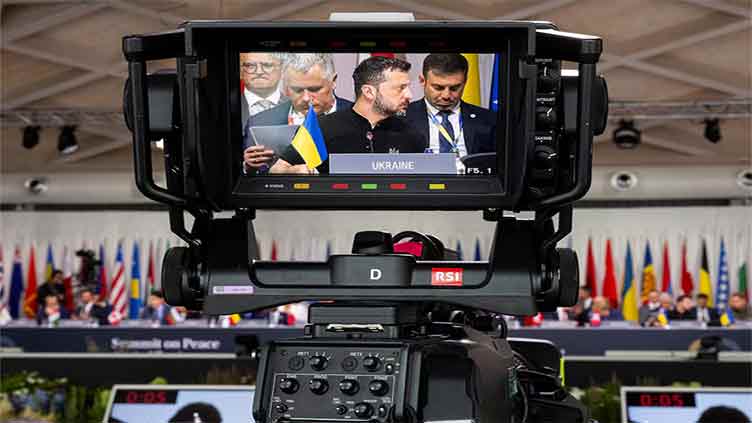Ukraine summit strives for consensus, way forward uncertain

World
Ukraine summit strives for consensus, way forward uncertain
BUERGENSTOCK, Switzerland (Reuters) - Western powers and other nations pushed for a consensus on how to end the war in Ukraine at a Swiss summit on Sunday, but some countries may refuse to back its final conclusions and there was no clarity on whether future talks would involve Russia.
More than 90 countries attended the two-day talks at a Swiss Alpine resort at the behest of Ukrainian President Volodymyr Zelenskiy.
But Moscow, which was not invited and had made clear it did not want to attend, labelled the summit a waste of time and instead put forward rival proposals from afar. China was another notable absentee.
The conference nevertheless underscored both the broad support Ukraine still enjoys from its allies but also the challenges for any lasting ceasefire, with Ukrainian forces on the back foot after recent military reverses and delays to Western aid. Russia controls about 20% of Ukraine.
A draft of the final declaration seen by Reuters refers to Russia's invasion as a "war" - a label Moscow rejects - and calls for Ukraine's control over the Zaporizhzhia nuclear plant and its Azov Sea ports to be restored.
The draft, dated June 13, called for Ukraine's territorial integrity to be respected.
But in line with the conference's more modest stated aims it omitted tougher issues of what a post-war settlement for Ukraine might look like, whether Ukraine could join the NATO alliance or how troop withdrawals from both sides might work.
The declaration's wording may fail to achieve unanimous support, Austrian Chancellor Karl Nehammer said.
The summit had also hoped to name the hosf another such meeting - possibly Saudi Arabia - but Nehammer said it was too early to say what format such a summit could take and whether Russia would be there. Another intermediary conference without Moscow's participation might be needed, he said.
"In my view, the communique will not be signed by everyone, because again it's a question of the specific choice of words, but even those who won't sign it have all made clear that their position is the same, that the war must end," he said.


